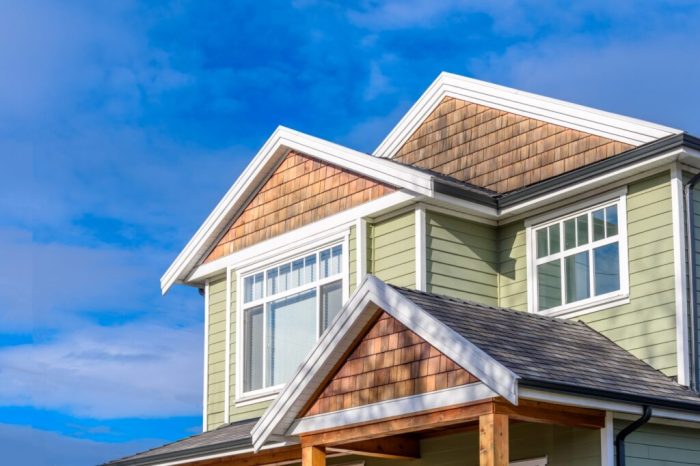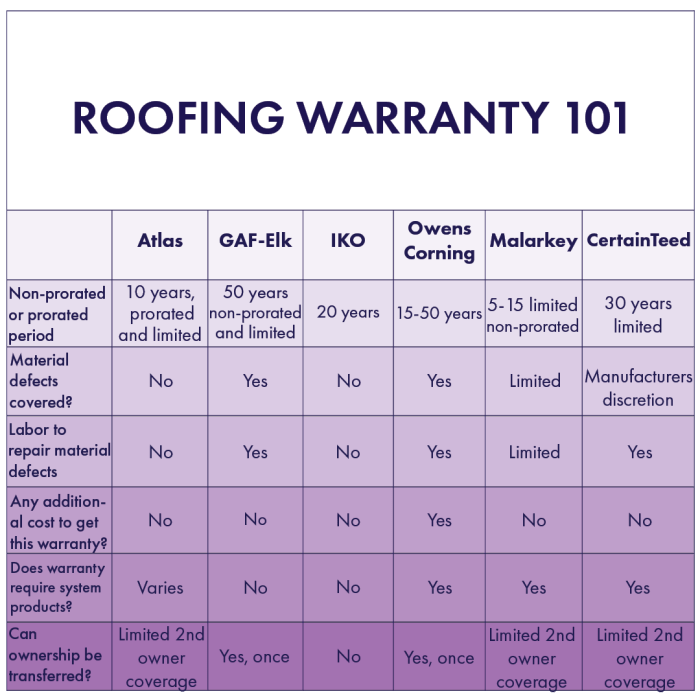Exploring Roofing Warranty Options: A Comprehensive Guide

Embark on a journey through the realm of roofing warranty options, where we delve into the intricacies of coverage, benefits, and key considerations. This guide aims to shed light on the nuances of different warranties, empowering homeowners to make informed decisions for their roofing systems.
Table of Contents
ToggleTypes of Roofing Warranty Options

Roofing warranty options play a crucial role in protecting your investment and ensuring peace of mind. Let's delve into the different types of roofing warranties available in the market and their respective benefits.
Manufacturer Warranties vs. Contractor Warranties
Manufacturer warranties are typically provided by the company that produces the roofing materials. These warranties often cover defects in materials and workmanship for a specified period. On the other hand, contractor warranties are offered by the roofing contractor and focus on the quality of installation and labor.
It's essential to understand the coverage provided by both types of warranties to ensure comprehensive protection for your roofing system.
Extended Warranties for Roofing Systems
Extended warranties offer additional coverage beyond the standard warranties provided by manufacturers or contractors. These warranties may include protection against specific issues like leaks, wind damage, or other types of roof-related problems. Investing in an extended warranty can provide you with added security and financial protection in the long run.
Key Factors to Consider
When evaluating roofing warranty options, homeowners should consider several key factors to ensure they are getting the best protection for their investment. One of the most important factors to consider is the length of the warranty, as this can impact the overall protection of the roofing system.
Additionally, the transferability of the warranty can play a significant role in the resale value of the home.
Warranty Length Impact
The length of a roofing warranty is a crucial factor to consider when choosing the right option for your home. A longer warranty period typically provides better protection for your roofing system, as it covers a longer period of time for potential issues to arise.
A warranty with a shorter length may leave you vulnerable to costly repairs or replacements once the warranty period expires. It is essential to carefully review the terms and conditions of the warranty to understand what is covered and for how long.
Significance of Transferable Warranties
Transferable warranties can add value to your home when it comes time to sell. A transferable warranty allows the new homeowner to inherit the remaining coverage, providing them with peace of mind and potentially increasing the resale value of the property.
This feature can be attractive to potential buyers, as it demonstrates that the roof is protected and well-maintained. When considering roofing warranty options, homeowners should prioritize transferable warranties for long-term benefits.
Manufacturer Warranty Details

When it comes to roofing warranties, the manufacturer's warranty plays a crucial role in providing coverage for the materials used in your roof. This warranty is typically provided by the company that produces the roofing materials and Artikels the terms and conditions under which they will repair or replace any defects in the materials.Common inclusions under a manufacturer's warranty may cover issues such as material defects, premature deterioration, or faulty workmanship.
These warranties often have a specific duration, such as 20 to 50 years, depending on the type of roofing materials used.
Common Exclusions or Limitations
Manufacturer warranties may have exclusions or limitations that homeowners should be aware of. These can include improper installation by a non-certified contractor, natural disasters like hurricanes or earthquakes, or lack of proper maintenance. It is essential to carefully read and understand these exclusions to avoid any disputes in the future.
Comparison of Manufacturer Warranties
| Roofing Company | Warranty Duration | Coverage Details |
|---|---|---|
| ABC Roofing | 30 years | Covers material defects and premature deterioration |
| XYZ Roofing | 25 years | Includes workmanship and installation issues |
| 123 Roofing | 40 years | Excludes damage from natural disasters |
Contractor Warranty Information
When it comes to roofing projects, a contractor warranty plays a crucial role in ensuring your peace of mind and protecting your investment. Let's delve into what a contractor warranty typically includes and why it is essential to hire a reputable contractor with a solid warranty offering.
What Does a Contractor Warranty Include?
A contractor warranty for roofing usually covers workmanship and installation issues that may arise after the project is completed. This can include leaks, loose shingles, or other related problems that are a result of the contractor's work. Additionally, some contractor warranties may also cover the cost of labor and materials needed to fix any issues within a specified period.
Importance of Hiring a Reputable Contractor
Hiring a reputable contractor with a solid warranty offering is crucial to ensuring that any potential issues with your roof are addressed promptly and effectively. A reputable contractor is more likely to stand behind their work and provide excellent customer service throughout the warranty period.
This can save you time, money, and stress in the long run.
Questions to Ask When Reviewing Contractor Warranty Options
- What specific issues are covered under the contractor warranty?
- How long is the warranty period and what are the terms?
- Does the warranty cover both labor and materials?
- Is there a process in place for filing warranty claims?
- Are there any exclusions or limitations to the warranty coverage?
Last Point
In conclusion, understanding the diverse landscape of roofing warranty options is crucial for safeguarding your investment and ensuring long-term protection for your home. By considering the key factors and details Artikeld in this guide, you can navigate the complexities of warranties with confidence and clarity.
FAQ Summary
What are the key factors to consider when evaluating roofing warranty options?
Homeowners should consider warranty length, coverage details, transferability, and the reputation of the warranty provider.
What is typically covered under a manufacturer's warranty for roofing?
Manufacturer warranties usually cover defects in materials and workmanship, but may have exclusions for natural disasters or improper installation.
Why is hiring a reputable contractor with a solid warranty offering important?
A reputable contractor ensures quality installation and service, which can impact the validity and effectiveness of the warranty.
Related posts
Recent Posts
- Modern Flat Roof House Designs by Award-Winning Architects: Innovative and Sustainable Living Spacesby Raimu Su Exterior Fiding
- Managed vs Unmanaged Server Hosting Explained: Key Differences and Considerationsby Raimu Su Exterior Fiding
- The Vital Role of Primary Care Physicians for Family Healthcareby Raimu Su Exterior Fiding
Hot topics
- Architecture (2)
- Architecture and Interior Design (1)
- Construction (1)
- Construction & Home Improvement (1)
- Design (1)
- Design Tools (1)
- Exterior Services (1)
- Family Healthcare (1)
- General (75)
- Home Decor (4)
- Home Improvement (40)
- Home Renovation (2)
- Interior Design (3)
- Maintenance and Repair (1)
- Maintenance and Repairs (1)
- Office Design (1)
- Property Restoration (1)
- Real Estate (3)
- Remote Property Management (1)
- Smart Home Technology (1)
- Sustainable Construction (1)
- Sustainable Living (1)
- WordPress category: Design & Architecture (1)
- WordPress Category: Home & Garden (1)
- WordPress category: Home Improvement (2)
- WordPress Hosting (1)
- WordPress Plugins for Cybersecurity Jobs with Remote Flexibility (1)

